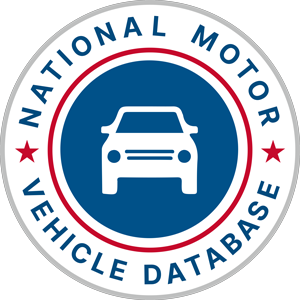VIN Reverse Lookup
Since 1981, every car has been assigned a Vehicle Identification Number (VIN), which is like an ID or a fingerprint for each vehicle. This identification code contains not only detailed information about the car but also helps to identify it in databases.
Suppose you have seen the same vehicle in your private parking spot every day and it hasn't moved in three months. Probably, you might want to contact the owner of the vehicle, but don’t know where to start.
First of all, you should perform a VIN reverse lookup to obtain the name and contact information of the owner. Hence, if a note on the windshield has no results, you will be able to email, text, or voicemail the owner.
Our article reveals the meaning of the VIN, its total usage, and the amount of information it holds. Besides, it helps to perform a VIN reverse lookup if necessary.
Suppose you have seen the same vehicle in your private parking spot every day and it hasn't moved in three months. Probably, you might want to contact the owner of the vehicle, but don’t know where to start.
First of all, you should perform a VIN reverse lookup to obtain the name and contact information of the owner. Hence, if a note on the windshield has no results, you will be able to email, text, or voicemail the owner.
Our article reveals the meaning of the VIN, its total usage, and the amount of information it holds. Besides, it helps to perform a VIN reverse lookup if necessary.
Can You Use a VIN Number to Find the Owner?
A VIN check can provide vehicle ownership details and timeline. However, only a detailed vehicle history report can provide ownership information.
The detailed vehicle history report will also include data on mileage history, title, maintenance, loan and lien records, accidents, theft records, etc. So, the full report offers precise and complete details as it draws information from multiple sources including public agencies, manufacturers, service companies, auto and salvage auctions, and dealerships.
Note: A person should make this inquiry within legal and permitted means. In other words, some places keep this information as a privilege. To obtain this information, one must sign a few forms in accordance with the laws and regulations outlined in the Driver's Privacy Protection Act.
The detailed vehicle history report will also include data on mileage history, title, maintenance, loan and lien records, accidents, theft records, etc. So, the full report offers precise and complete details as it draws information from multiple sources including public agencies, manufacturers, service companies, auto and salvage auctions, and dealerships.
Note: A person should make this inquiry within legal and permitted means. In other words, some places keep this information as a privilege. To obtain this information, one must sign a few forms in accordance with the laws and regulations outlined in the Driver's Privacy Protection Act.
How Do I Lookup a VIN Number for Free?
Sometimes people don’t trust the vehicle history told by the seller. So, through an online VIN check, they can receive paperwork proving the history of the car. There are a few databases where you may conduct online VIN lookups. For instance:
- National Highway Traffic Safety Administration (NHTSA) provides information on vehicle safety and recall details.
- National Insurance Crime Bureau’s lookup tool is for revealing stolen or damaged vehicles.
- Free decoding of the VIN is also possible through third-party VIN lookup companies.
What Can a VIN Number Search Provide?
A VIN search provides a piece of significant information that a person won’t likely be able to get when looking at the vehicle or even test-driving it.
A basic report by the VIN decoder contains the following information:
A basic report by the VIN decoder contains the following information:
- The history of accidents and damage
- If the vehicle has ever been involved in natural disasters
- Theft and previous repairs
- Salvage or branded title
What Can I Do With a VIN Number Lookup?
First of all, the VIN code distinguishes your car from others. So, it is the most prominent set of characters for it. You may look up the VIN on the internet and receive the list of features that make your vehicle distinct.
In case you want to purchase a pre-owned car, through VIN lookup, you can get the vehicle history report and find the records of its previous owners, repairs, and accidents. Moreover, you can find out manufacturer recalls and repair history.
In case you want to purchase a pre-owned car, through VIN lookup, you can get the vehicle history report and find the records of its previous owners, repairs, and accidents. Moreover, you can find out manufacturer recalls and repair history.
Why Do People Look up a Car’s VIN?
Usually, a vehicle’s VIN is searched by a person who wants to purchase a car. It is particularly helpful when buying a pre-owned car. That is to say, VIN may provide a history report of the car that includes the accidents and damages that happened during the whole lifespan of the car.
What Additional Research Should You Do Before Buying a Car?
Apart from performing a VIN lookup, there’s an extra investigation to do before driving a car off the lot. To be sure about the purchase, find below a few supplementary things to research:
Budget
Before entering the dealership, discuss the budget. This way, you will be drawn to a vehicle that matches your budget.
Consider the Cost to Maintain it
When purchasing a car, a person should pay special attention to the maintenance and gas costs of the car. Check the required maintenance and gas mileage costs to be sure that it is relevant to your budget.
Safety
Always research car safety features and ratings. Before reaching the clients, the vehicle passes several safety tests. So, the existence of curtain and console airbags, safety alert systems, electronic stability control, and traction control are vital for the safety drive.
Features
Examine the pros and cons of the vehicle’s features. Typically, the more features it has, the higher the price. Make sure that it has all the features that you require.


